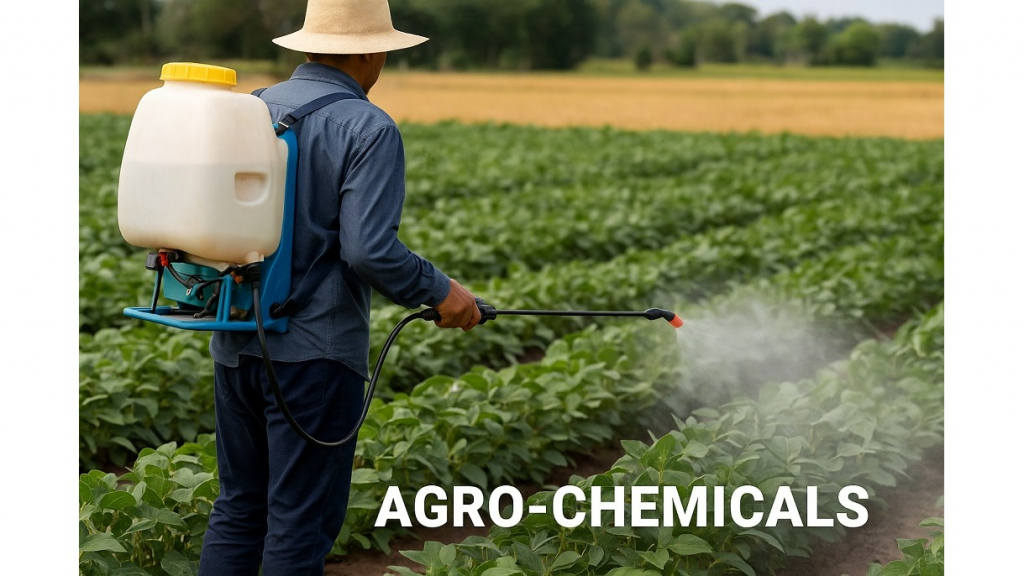Agro-Chemicals Market Entry Strategy for CARICOM Region
1. Research and Registration
-
Identify Target Markets: Focus on top agricultural countries: Jamaica, Guyana, Belize, Suriname, Trinidad & Tobago, Barbados.
-
Register Products:
Each country has an agency (e.g., Jamaica’s Pesticides Control Authority) where you must register agro-chemicals before selling.-
Prepare technical dossiers (ingredients, toxicity studies, usage instructions).
-
Get environmental and health clearances where required.
-
-
Certifications to Highlight:
-
Eco-friendly/organic certification (USDA Organic, OMRI Listed)
-
ISO Certifications for production facilities (ISO 9001, ISO 14001)
-
2. Distribution and Partnerships
-
Find Local Distributors: Partner with agricultural supply stores, cooperatives, and hardware outlets.
-
Offer Private Label Options: Many small distributors prefer to rebrand imported products.
-
Regional Warehousing:
Use hubs like Trinidad or Barbados for easy access to smaller islands. -
Leverage B2B Platforms:
Promote on CaricomMarket.net and other online wholesale trade platforms for faster reach.
3. Pricing and Packaging Strategy
-
Offer Small Packaging Options:
Many Caribbean farmers are smallholders — 1L, 5L, or 10kg packages sell better than 25L drums or 50kg sacks. -
Flexible Pricing:
Introduce introductory offers or bulk-buy discounts (e.g., "Buy 10 cases, get 1 free").
4. Branding and Education
-
Emphasize Climate Resilience:
Position products as tropical climate tested and effective against flood, drought, and pest outbreaks. -
Farmer Education:
Host simple "Best Usage" workshops in collaboration with distributors — builds trust and loyalty. -
Use Creole/Patois marketing:
For localized campaigns, using Caribbean dialects improves acceptance.
5. Logistics and After-Sales
-
Shipments: Prefer consolidated shipments (full container loads when possible).
-
After-Sales Support: Hotline/email for farmers needing product advice or troubleshooting.
🚜 Sample Agro-Chemicals Product List (High Demand in CARICOM)
| Category | Example Product | Use Case | Country Demand Hotspots |
|---|---|---|---|
| Fertilizers | NPK 20-20-20, Urea 46% | General crop nutrition | Jamaica, Guyana, Suriname |
| Herbicides | Glyphosate, Paraquat-free herbicides (e.g., Glufosinate) | Weed control for sugarcane, rice | Belize, Guyana, Trinidad |
| Insecticides | Imidacloprid, Spinosad (organic option) | Pest control for fruits, cocoa | Jamaica, Belize, Barbados |
| Fungicides | Mancozeb, Copper Oxychloride | Fungus protection for bananas, citrus | St. Lucia, St. Vincent |
| Bio-fertilizers | Mycorrhizae-based, Rhizobium inoculants | Organic farming and soil health | Barbados, Grenada |
| Plant Growth Regulators | Gibberellic Acid (GA3) | Increase fruit size in mangoes, bananas | Jamaica, Belize |
| Seed Treatments | Thiram-based seed dressers | Protects seeds during early growth | Guyana, Suriname |
Quick Launch Timeline
| Month | Action |
|---|---|
| 1 | Product registration in target countries |
| 2 | Finalize distributor partnerships and warehousing |
| 3 | Launch branding campaigns (online, workshops) |
| 4 | Start sales through wholesale platforms and direct distributor channels |
| 6 | First evaluation + adjustments (based on feedback) |
✅ Bonus Tip:
Products labeled as "low residue" or "eco-safe" have a marketing advantage because CARICOM countries are pushing for healthier agriculture practices.




Share this via
Or copy link